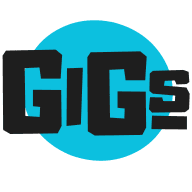8 Free or Low-Cost Resources That Can Significantly Improve Your Marketable Skills
Building marketable skills doesn't have to drain your bank account. This article explores eight accessible resources that can help you develop valuable professional abilities, backed by insights from experts who have used them successfully. From online learning platforms to analyzing real-world examples, these tools offer practical ways to advance your career without breaking the budget.
Study Successful Freelancers' Public Work
When you're working for yourself, the pressure to keep your skills sharp is immense. It's easy to get caught up in the cycle of chasing expensive certifications or online courses, thinking that a new credential is the key to better clients. But the truth is, many of these programs teach you the craft you already know. The real challenge for most freelancers isn't getting better at their core skill; it's getting better at the business of selling that skill—framing its value, scoping projects, and speaking the language of clients. This is where the most valuable learning often happens, and it rarely costs a thing.
The single most impactful, low-cost resource I've found is simply studying the public-facing work of successful freelancers and small agencies who are one or two steps ahead of you. I don't mean just looking at their final portfolios. I mean digging into their case studies, their blog posts that break down a project, or even the detailed proposals they sometimes share as marketing content. These documents are a free masterclass in client communication and strategy. You get to see exactly how they diagnose a problem, structure a solution, and tie their specific skills to a tangible business outcome. It's a blueprint for moving from a task-doer to a strategic partner.
I once mentored a talented graphic designer who kept getting stuck on low-budget logo projects. She was frustrated, feeling her work was undervalued. I had her find three small design studios she admired and study their websites, not for design inspiration, but for their project case studies. She noticed they never just showed the final logo; they told a story about discovering the client's core business problem and how their design process solved it. She completely rewrote her own portfolio and proposals to mirror that structure. The next project she landed wasn't just for a logo; it was for a comprehensive brand identity system, and it paid three times her usual rate. She didn't learn a new design skill, she learned how to frame the value of the skills she already had. It shows that sometimes the best teacher isn't a course, but a peer a little further down the path.
Coursera Sharpened My Data Analysis Abilities
Coursera free courses were one of the free resources that I found useful in enhancing my marketable skills. I found it when I was seeking information on how to sharpen my data analysis skills, namely, the way of working with such tools as Excel and Google Analytics. I also used their options that are free (like certifications) and practiced what I was learning by applying it to my projects with clients. This has assisted me to become more productive and provide more information based findings that have directly evolved my business. The freedom to receive good education without a financial constraint was priceless to remaining competitive as a freelancer.

YouTube Walkthroughs Taught Me Real Skills
In my freelancing days, the resource that helped me the most was YouTube's free walkthroughs from small creators who shared real project breakdowns. Not polished courses, just screen recordings of how they solved a problem step by step. I found one by accident while looking for a quick fix in Photoshop, and it ended up teaching me a whole skill I later used in paid client work.
I practiced by copying their process on my own files, pausing and replaying until I could do it without thinking. That simple routine: watch, copy, repeat, improved my skills faster than any paid class I tried later. It taught me that sometimes the best learning comes from people who work like you, not from fancy tutorials.

Open-Source Projects Demonstrate Practical Development Experience
Contributing to open-source projects gives people the chance to work on real software that thousands of users depend on. These projects are maintained by communities of developers who welcome newcomers and provide guidance. By participating, individuals learn how professional teams communicate, solve problems, and write quality code.
This experience looks impressive on a resume because it demonstrates practical skills and teamwork ability. Open-source work also helps people build a portfolio of contributions that potential employers can review. Search for beginner-friendly open-source projects online and make a first contribution this month.
Free Coding Bootcamps Build Programming Foundations
Free online coding bootcamps have become a powerful way for people to learn programming without spending money. These programs teach languages like Python, JavaScript, and HTML through structured lessons that anyone can follow. Many bootcamps include hands-on projects that help learners build actual websites or applications.
Completing these courses shows employers that someone has taken initiative to develop technical skills. The knowledge gained from coding bootcamps can open doors to jobs in web development, software engineering, and data analysis. Start exploring free coding bootcamps today to begin building a foundation in programming.
Public Libraries Offer Professional Development Workshops
Public libraries have expanded far beyond just lending books to become community learning centers. Many libraries now host free workshops on resume writing, interview skills, and computer basics. These sessions are often led by experienced professionals who volunteer their time to help community members.
Attending library workshops allows people to network with others who are also working on career growth. The welcoming environment makes it easy for anyone to ask questions and learn at their own pace. Visit a local library this week to discover what professional development opportunities are available.
Industry Podcasts Deliver Expert Knowledge Effortlessly
Industry podcasts bring expert knowledge directly to anyone with a smartphone or computer. Listening to these shows during a commute or workout allows people to stay current with trends and best practices in their field. Podcast hosts often interview successful professionals who share strategies and lessons from their careers.
This constant exposure to new ideas helps listeners think more strategically about their own work. Unlike formal courses, podcasts make learning feel effortless and can spark inspiration for career advancement. Subscribe to three podcasts in a target industry and commit to listening to one episode every week.
Government Training Programs Provide Industry-Recognized Credentials
Government-funded training programs are designed to help citizens gain skills that local employers actually need. These initiatives often provide free courses in areas like healthcare, manufacturing, information technology, and trades. Participants typically receive certificates or credentials upon completion that are recognized by industry.
The programs frequently include job placement assistance to help graduates find employment quickly. Many people overlook these opportunities simply because they do not know the programs exist. Contact local workforce development offices to learn what free training programs are currently accepting applicants.


